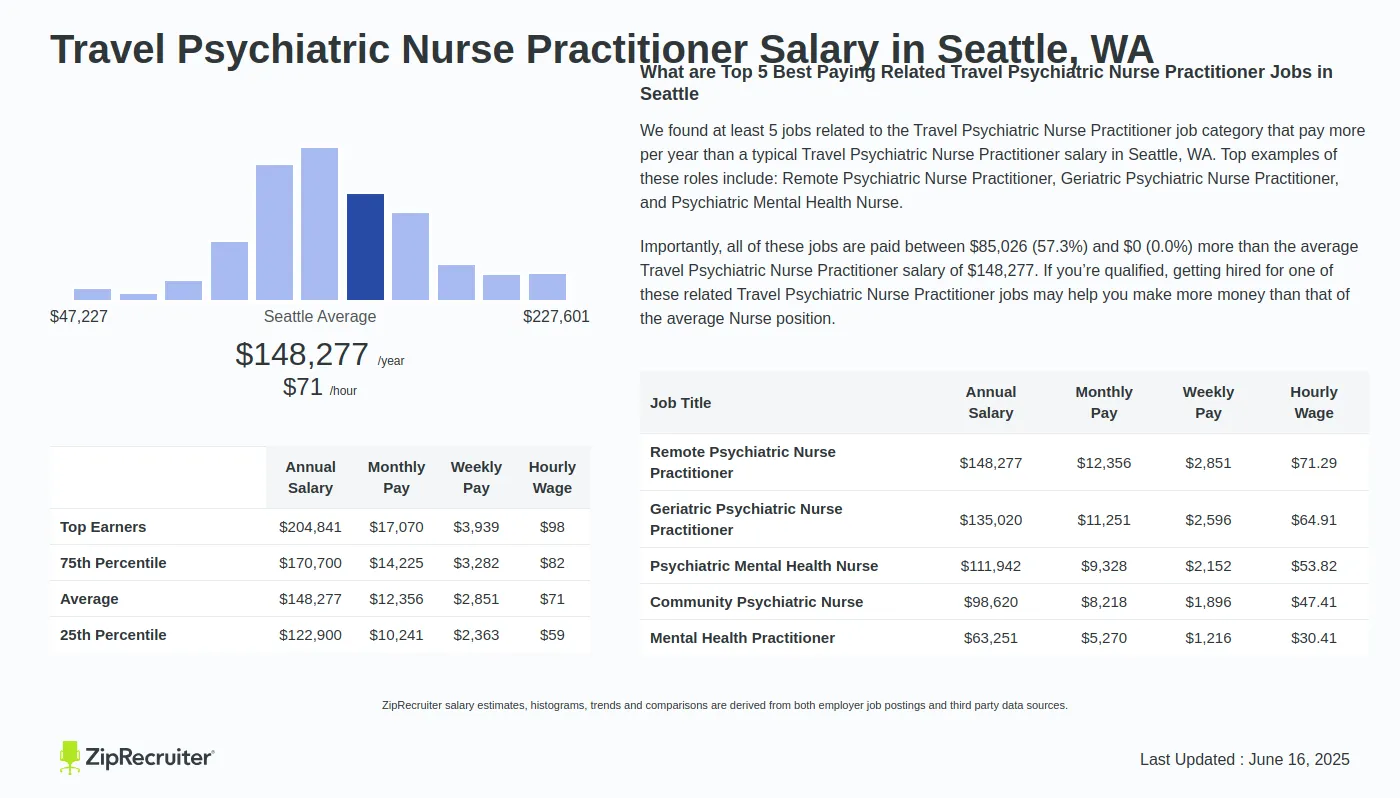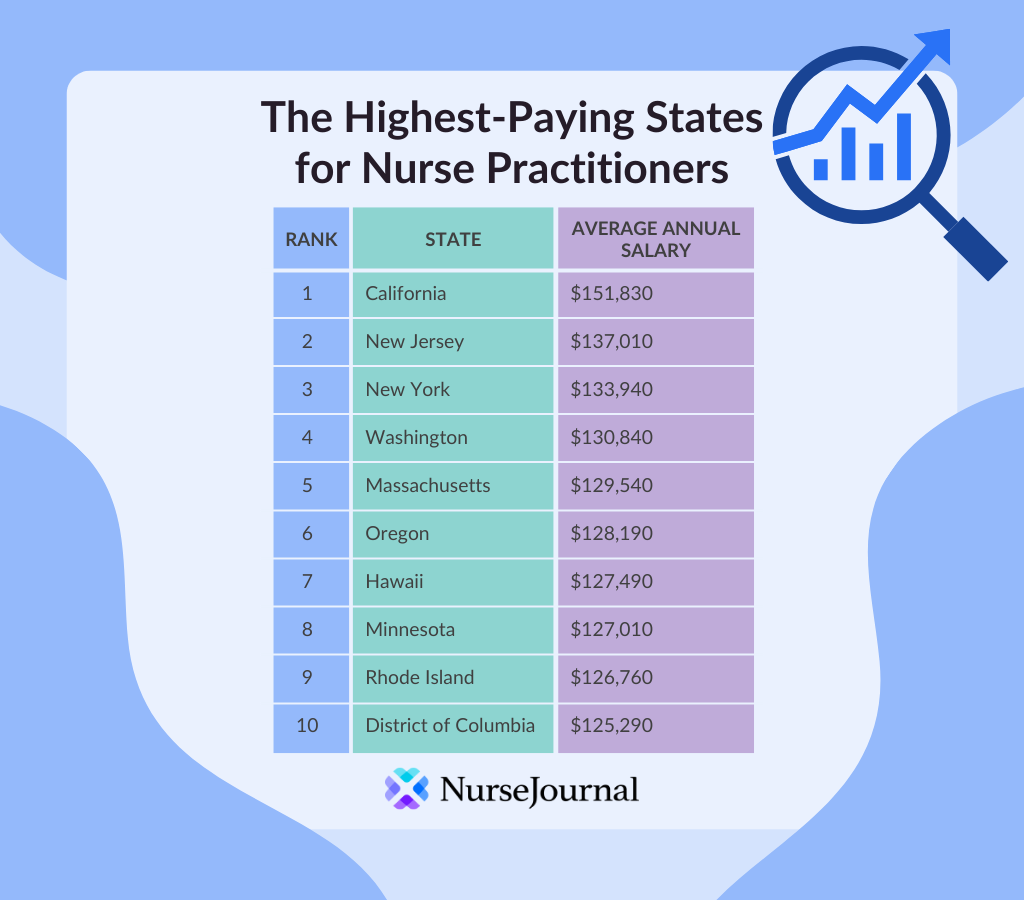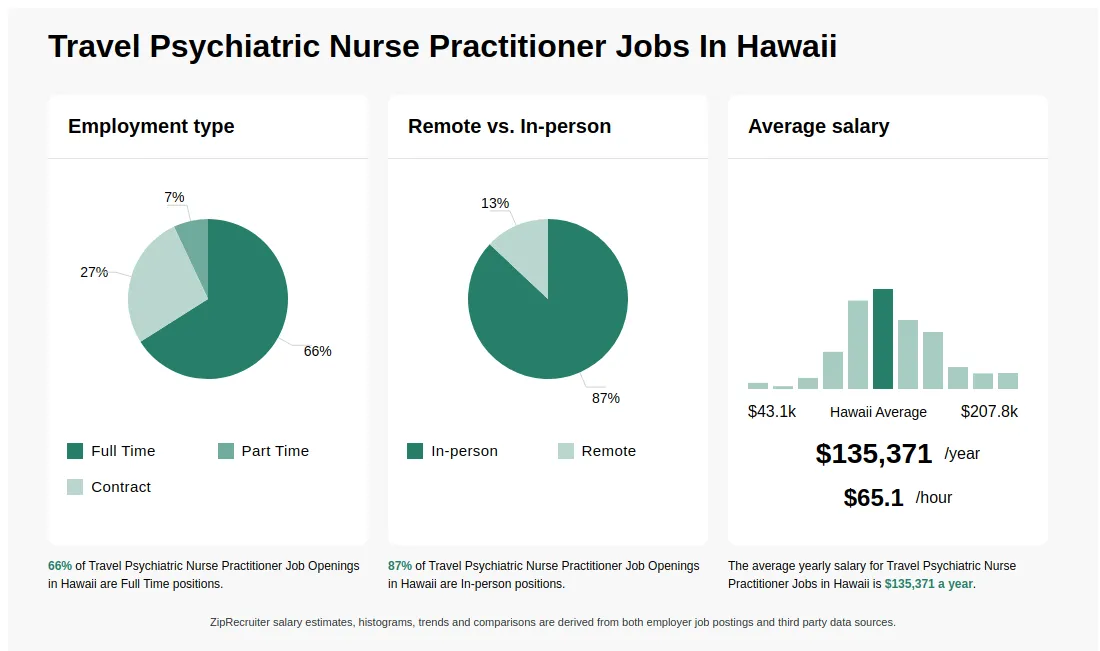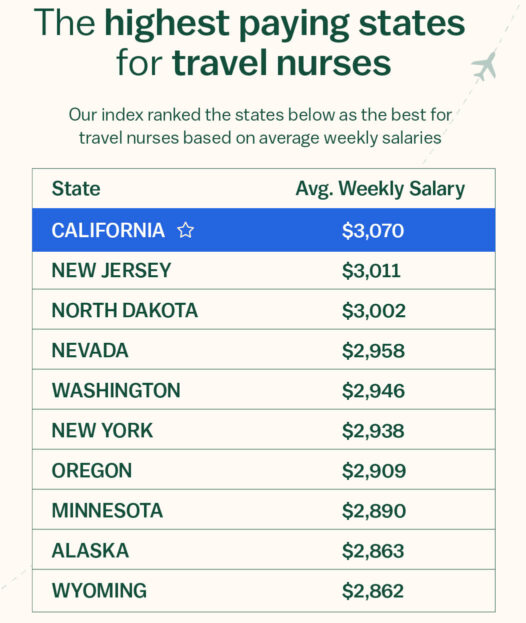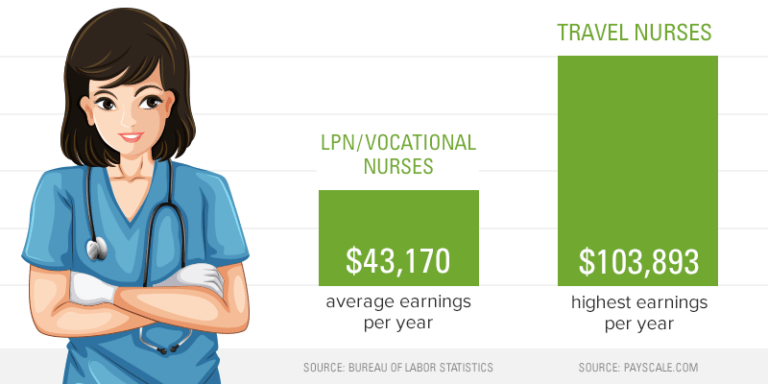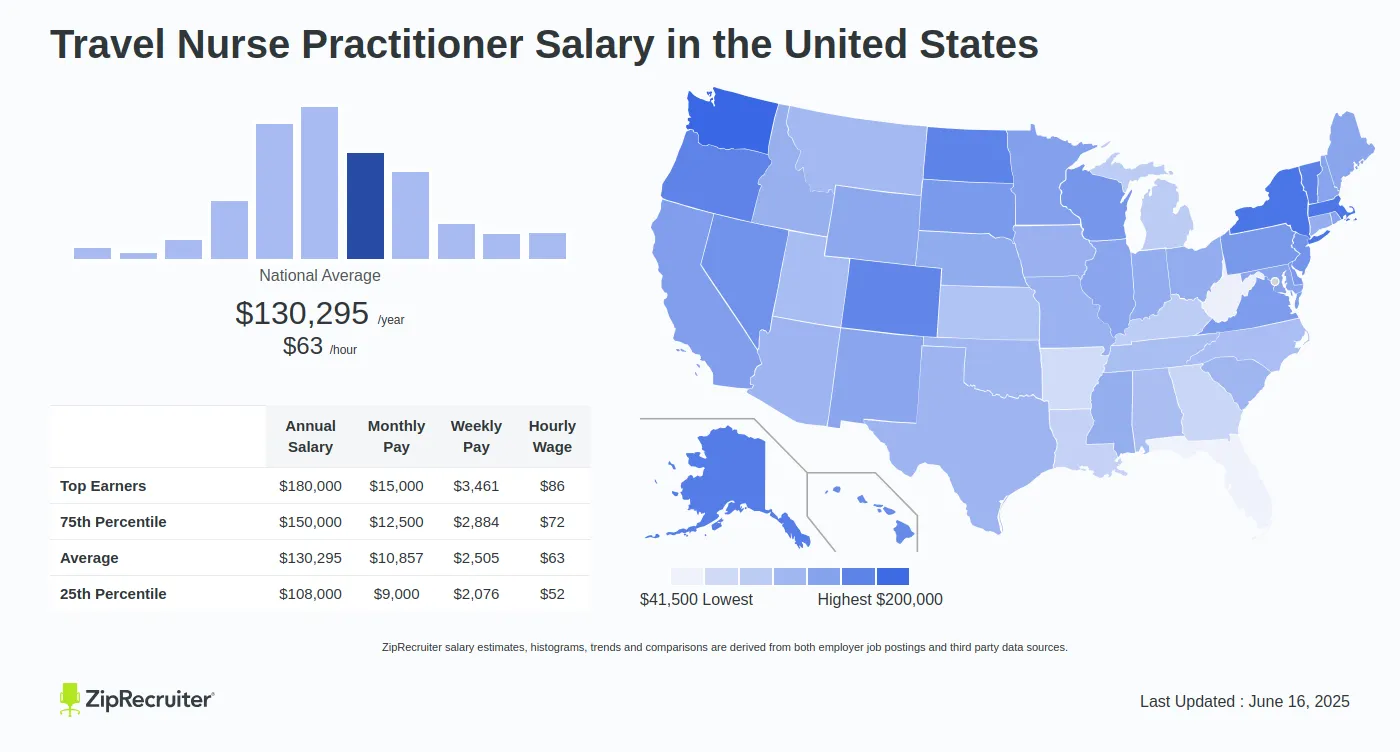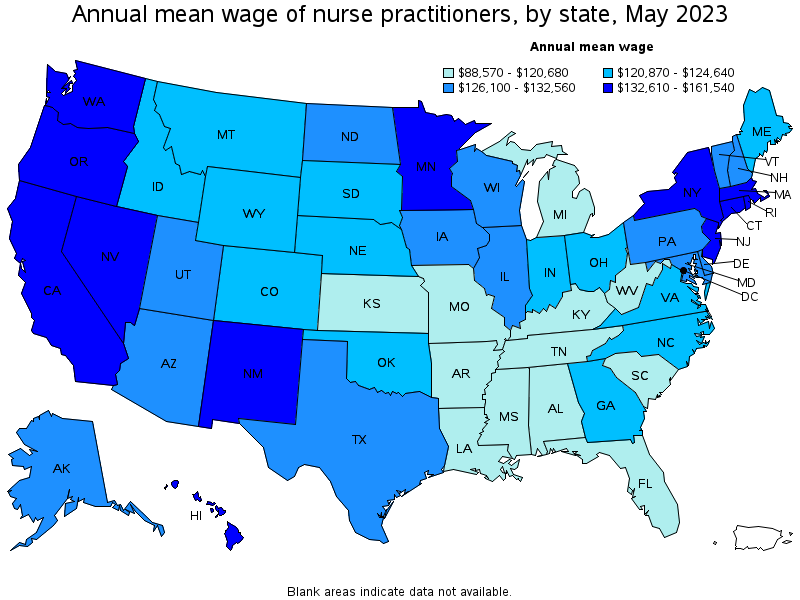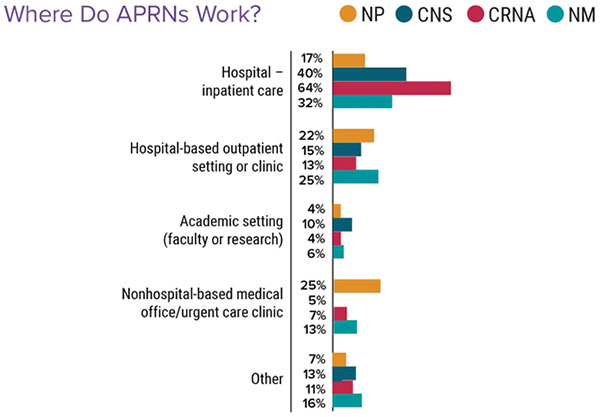Travel Psych Nurse Practitioner Salary
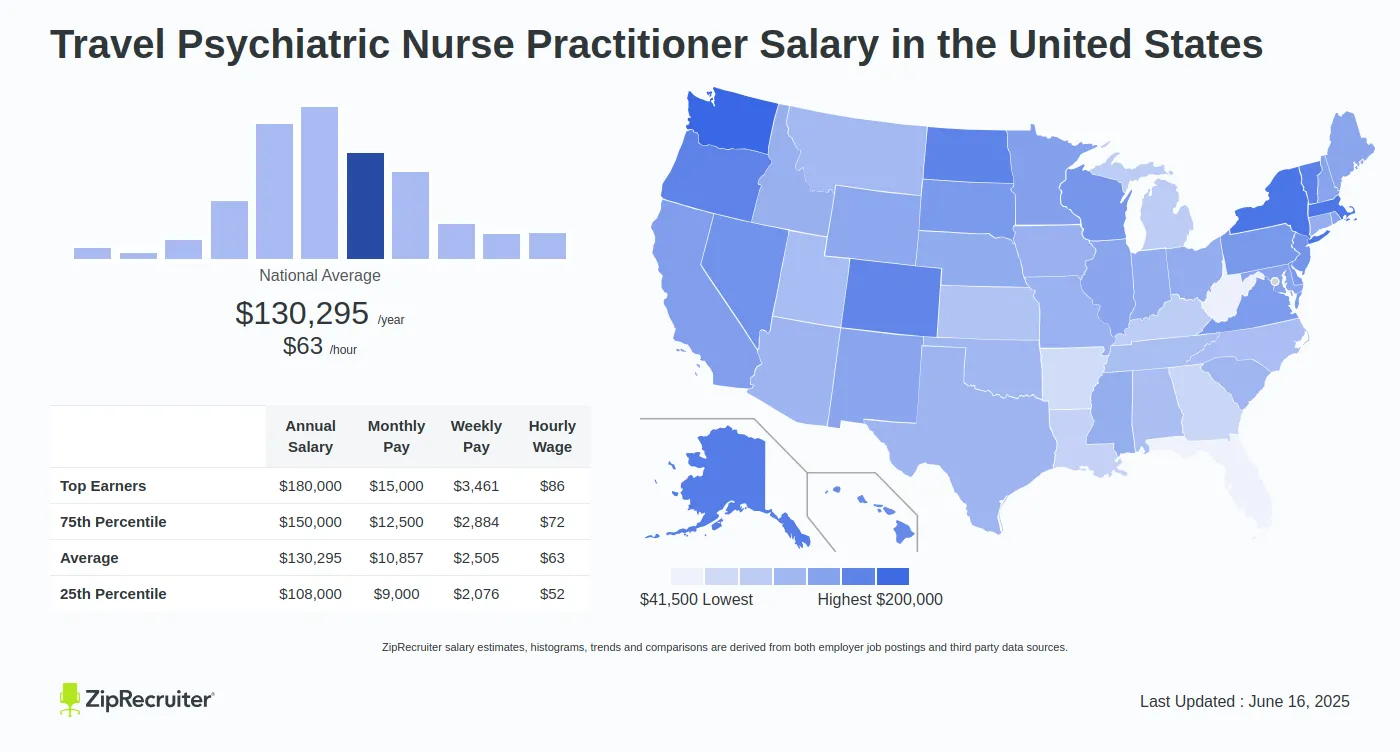
The demand for mental healthcare professionals is surging across the United States, creating unprecedented opportunities for travel psychiatric nurse practitioners (NPs). This increased demand is significantly impacting salary expectations and influencing career paths for professionals in this specialized field.
This article examines the current landscape of travel psychiatric NP salaries, exploring factors that drive compensation, regional variations, and the implications for both practitioners and healthcare facilities.
Current Salary Landscape
Travel psychiatric nurse practitioners can expect competitive compensation packages. Several factors influence these packages, including experience level, certifications, location of assignment, and the specific needs of the healthcare facility.
According to data from the U.S. Bureau of Labor Statistics (BLS), the median annual salary for nurse practitioners in general was $121,610 in May 2022. However, travel psychiatric NPs often earn considerably more due to the premium placed on their specialized skills and the temporary nature of their assignments.
Indeed.com reports an average base salary of $148,984 per year for travel psychiatric nurse practitioners in the United States, as of October 2024. However, these figures can fluctuate substantially.
Factors Influencing Salary
Location plays a crucial role. States with higher costs of living or those experiencing severe mental health professional shortages typically offer more lucrative compensation packages.
Assignments in rural or underserved areas, where access to mental healthcare is limited, often come with higher pay rates and additional benefits like housing stipends and travel reimbursements.
Experience and certifications also significantly impact earning potential. Experienced NPs with specialized certifications in areas like child and adolescent psychiatry or addiction psychiatry can command higher salaries.
The specific needs of the healthcare facility also influence salary. Facilities facing critical staffing shortages or requiring specialized expertise may be willing to pay a premium to attract qualified travel psychiatric NPs.
Regional Variations
Salaries for travel psychiatric NPs vary significantly across different regions of the United States. The Northeast and West Coast tend to offer higher salaries compared to the Southeast and Midwest, reflecting regional cost-of-living differences and demand.
For example, a travel psychiatric NP working in California or New York might earn a higher hourly rate compared to one working in Alabama or Nebraska. However, these differences may be offset by higher living expenses in certain states.
It’s important for travel NPs to research the cost of living in their potential assignment locations to accurately assess the overall value of the compensation package.
Implications and Impact
The high demand and competitive salaries for travel psychiatric NPs have several implications for the healthcare industry. Firstly, it helps to address staffing shortages in underserved areas, improving access to mental healthcare for vulnerable populations.
Secondly, it provides NPs with greater career flexibility and earning potential. Travel assignments allow them to gain diverse clinical experience and explore different parts of the country while earning a competitive salary.
However, the reliance on travel NPs can also create challenges for healthcare facilities. The temporary nature of these assignments can disrupt continuity of care and require significant resources for onboarding and training.
Furthermore, the higher cost associated with hiring travel NPs can strain healthcare budgets, potentially impacting other areas of patient care. Long-term solutions, such as expanding NP training programs and addressing systemic barriers to mental healthcare access, are needed to alleviate staffing shortages and ensure sustainable, affordable care.
Conclusion
The salary landscape for travel psychiatric nurse practitioners is dynamic and influenced by a complex interplay of factors. While competitive compensation packages offer attractive opportunities for NPs, the healthcare industry must address the underlying causes of staffing shortages to ensure sustainable access to mental healthcare for all.
As demand for mental health services continues to rise, the role of travel psychiatric NPs will likely remain crucial in bridging the gap in care delivery, underscoring the importance of understanding salary trends and their implications.


